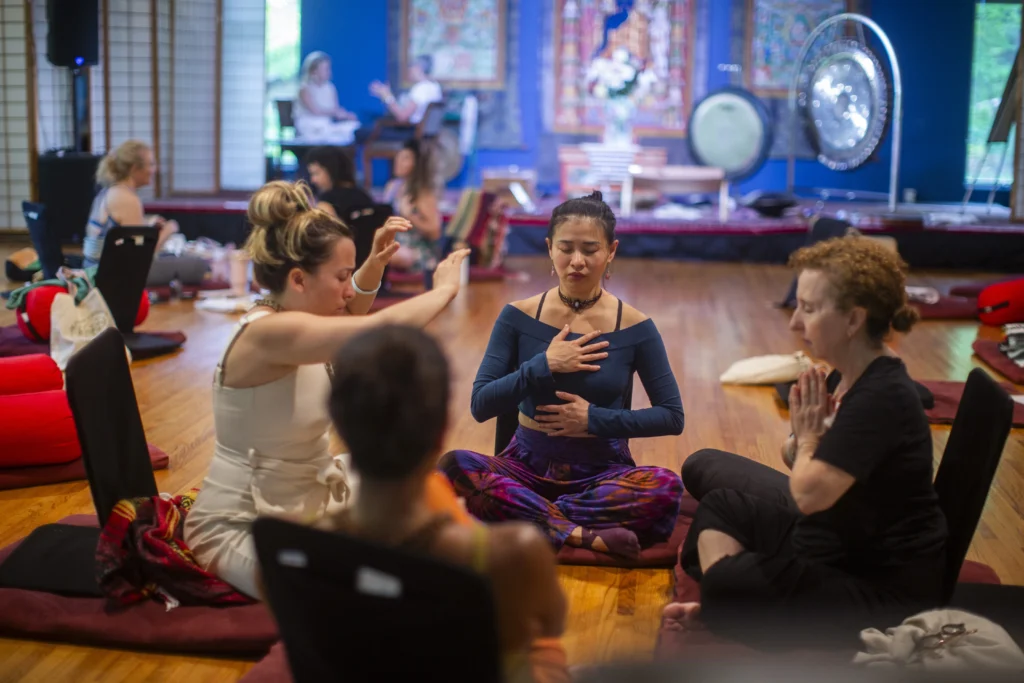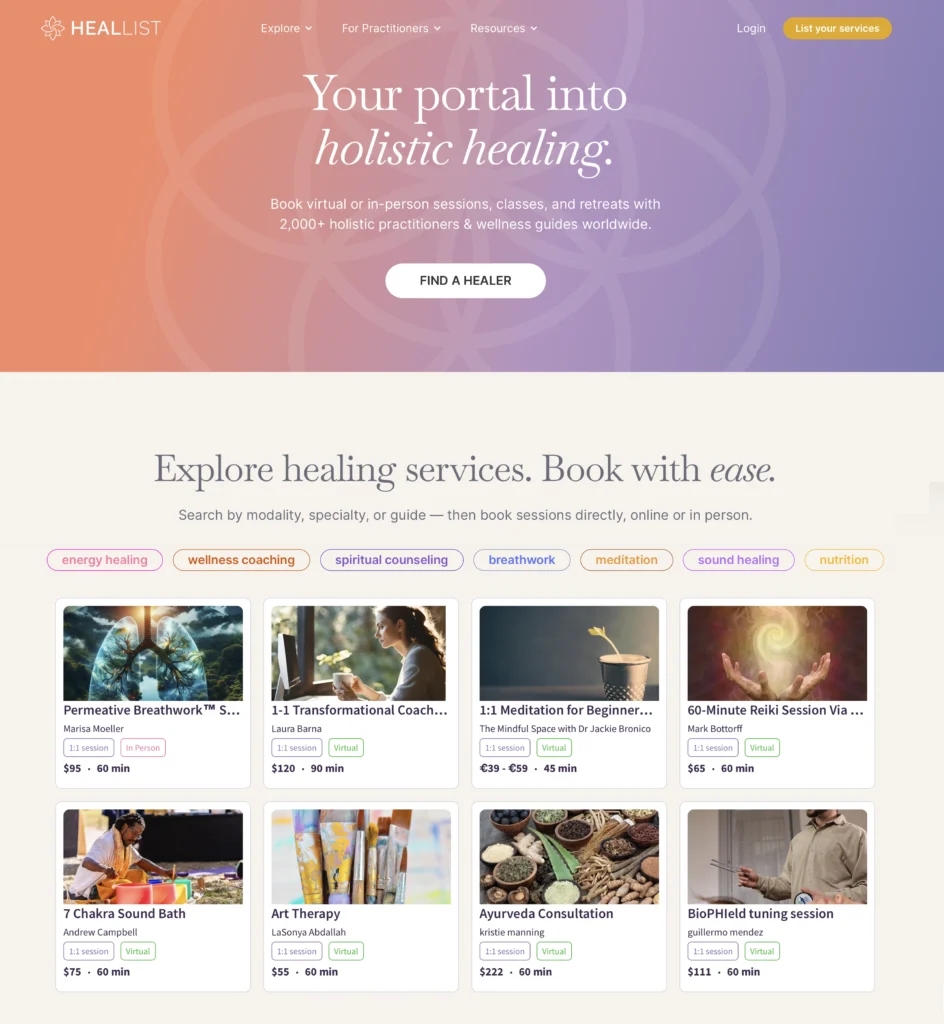
Heallist wants to do for wellness what Airbnb did for travel, streamlining access to holistic services through a searchable, bookable platform built for modern wellness practitioners and seekers
Heallist, a digital marketplace for holistic health experiences, has officially launched to the public, connecting users to more than 2,000 practitioners across 55 countries and over 3,000 services.
The move marks a new growth phase for Heallist as consumer interest in nontraditional health solutions continues to rise. The platform spans more than 200 healing modalities, ranging from reiki and acupuncture to functional nutrition, sound therapy and somatic healing.
“People are seeking care that goes beyond the traditional system — but navigating the holistic space can feel fragmented and overwhelming,” Heallist founder and CEO Yuli Ziv said. “We built Heallist to change that — by creating one place where you can find real healing, connect with soul-aligned practitioners, and access tools that support your entire journey.”

Users schedule one-on-one appointments, group classes and retreats all within a single interface. Practitioners, meanwhile, can join the platform for free, with paid subscriptions unlocking premium features like zero booking fees, increased visibility and priority placement in search results. They also have access to a management dashboard that handles scheduling, payments, and service listings, integrated with tools such as Zoom, Stripe, PayPal, and Google Calendar.
Ziv, a serial entrepreneur who previously built and sold a successful influencer marketing platform to a software company, told Athletech News last year that gaps in the American healthcare system have created an urgent need and growing willingness to explore new wellness channels.

“In the U.S., we’re the country spending the most on healthcare, yet we have some of the lowest life expectancies,” she said last November. “People are starting to look for alternative solutions because they’re just not getting some of those answers from traditional healthcare, especially when it comes to preventative practices and complementary medicine. I think consumers are becoming more and more educated and more empowered to look for other solutions. It doesn’t replace traditional medicine, but the need for complementary solutions is there.”

The platform also empowers wellness practitioners, who are typically solopreneurs, with a business-forward toolkit to expand their reach and manage the finer details of running a practice.
“We’re seeing this role of a holistic practitioner becoming more of a viable career path for people, and it’s something that is respected, reputable, and certified,” Ziv said. “It’s a legit business, and I think it’s something that we’re just seeing get started.”
